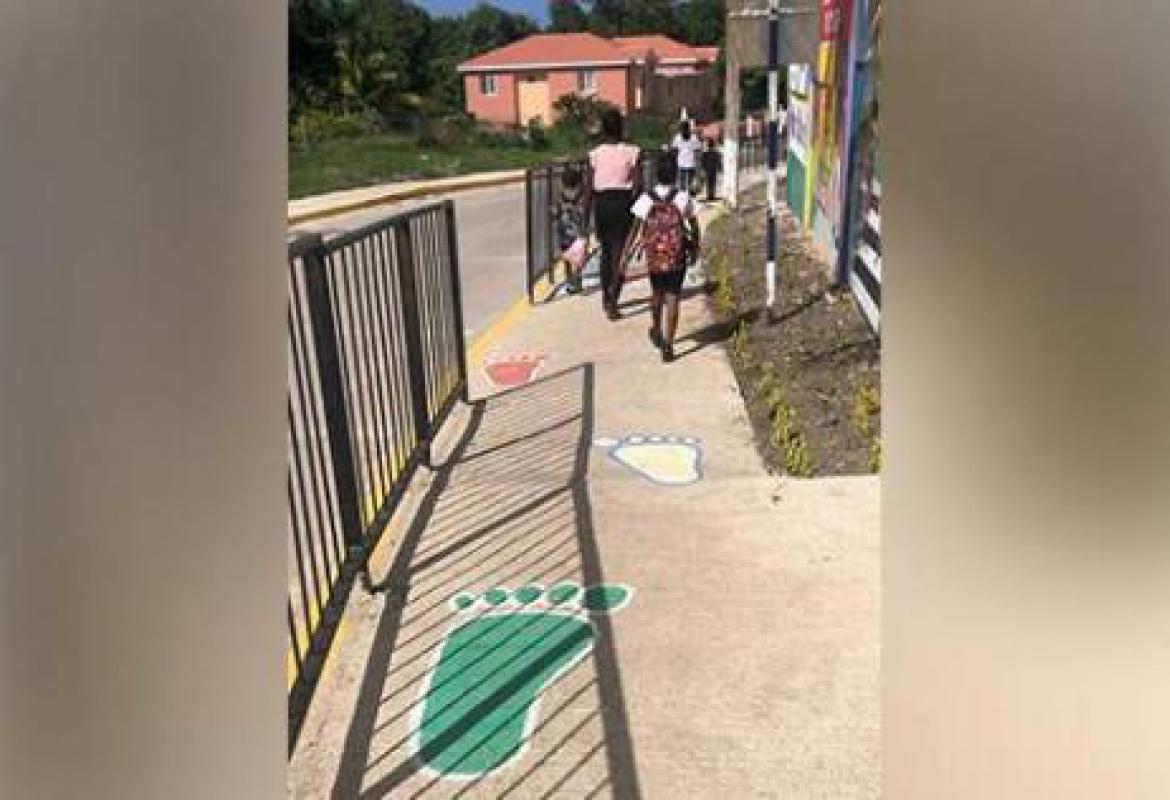Bridge Jamaica Programme
The Bridge Jamaica Programme follows the design of the Chilean Programa Puente, which utilizes a series of social interventions to allow persons living below the poverty line, gain greater access to social amenities; affording them greater opportunities to alleviate their current state of abject poverty, thereby providing a virtual “bridge” that connects them with social services. This programme seeks to address aspects of social marginalization and to empower targeted families to achieve minimum standards, based on seven socio-economic pillars, which include Personal Identification, Health, Education and Training, Family Dynamics, Income, Employment, Housing and Disaster Management. Activities relating to each pillar of the Bridge include the provision of subsidies to each family to access civil documentation; facilitating family sessions (to include reproductive Health, Parenting, Healthy Lifestyle, Disaster preparedness and Management), family excursions, educational grants, housing assistance grants, and labour activation grants.The implementation of the Bridge Jamaica programme, in rural Jamaica has been made possible by the allocation of USD 285,000 (JA $25,365,000), through the Community Investment Project (CIP). Under the Bridge Jamaica project, approximately 42 families have been targeted from the following parishes and communities:
- Trelawny: Freemans Hall, Joe Hut, Wait A Bit and Lorrimers
- Portland: Bybrook, Tranquility, Bangor Ridge and Skibo
- St. Thomas: Hagley Gap, Cedar Valley, Somerset, Pear Tree, Airy Castle and Bath.
These communities are ranked quintile 1 by the Planning Institute of Jamaica (PIOJ), in its 2008 poverty ranking.The targeted families are beneficiaries of the Programme of Advancement Through Health and Education (PATH), and were shortlisted by the Ministry of Labour and Social Security. Proximity of communities and population size also influenced the selection for participation. Details of the Bridge Jamaica programme are first explained to the beneficiaries, after which a family contract is signed. This contract indicates the willingness of families to work towards achieving the minimum standards which are stipulated by the programme. The JSIF, by way of trained Social Workers assigned to each participating family, provide integral psychosocial support to the families, as a medium to overcome poverty. The programme design utilizes public and private resources (through a Social Protection Network (SPN), along with the capabilities of the families, to facilitate a transformation from extreme poverty. The programme aims at ensuring that the families live with dignity, through benefits from existing social programmes and amenities through the SPN and PATH. The SPN comprises agencies such as the Ministry of Labour and Social Security, Food For The Poor, Office of Disaster Preparedness and Emergency Management (ODPEM), the Registrar General's Department ( RGD), HEART Trust NTA, Ministry of Health, among others, based on specific needs.






